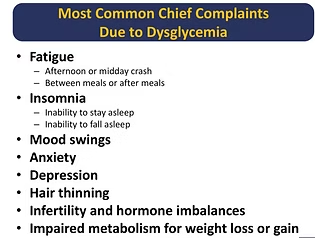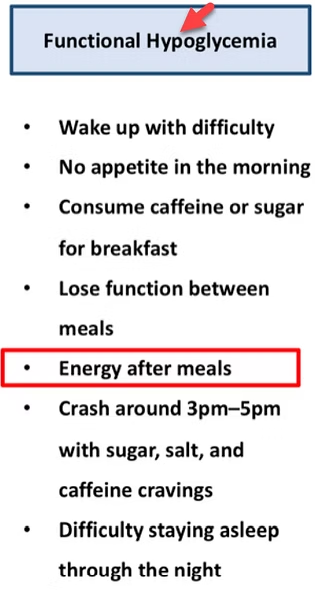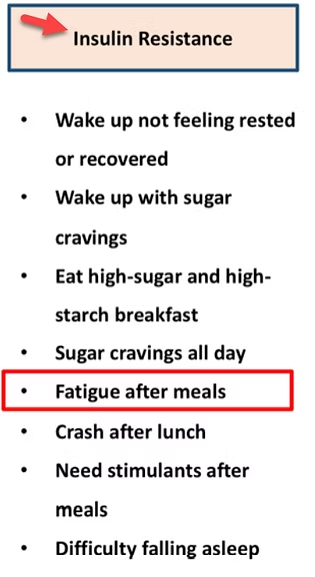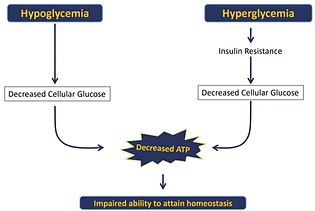Blood sugar, an essential element in our bodies, requires meticulous regulation at a highly precise level. Failure to maintain proper blood sugar levels can lead to various health issues, often associated with inflammation. However, by understanding the connection between fiber and blood sugar, we can effectively treat and even prevent these problems altogether.
Identifying Symptoms of Blood Sugar Dysregulation
When it comes to blood sugar dysregulation, several symptoms can serve as warning signs. It is important to recognize these indicators to address the issue promptly:
- Fatigue: Feeling excessively tired and experiencing energy crashes after meals.
- Shaking: Experiencing tremors or shaking sensations.
- Sleep Trouble: Having difficulty falling asleep or staying asleep.
- Brain Fog: Experiencing mental fatigue, difficulty concentrating, or mood swings.
Unveiling Glucose Responses
To determine what constitutes a “normal” glucose response, it is crucial to consider the absence of fatigue or energy fluctuations after meals. Abnormal responses to glucose can manifest in two forms: hypoglycemia and insulin resistance.
Hypoglycemic Response Symptoms
- Difficulty staying asleep or waking up.
- Lack of appetite in the morning.
- Energy boost after meals followed by an energy crash around 3-5 pm.
- Cravings for sugar, salt, or caffeine.
- Irritability, shakiness, and/or anxiety between meals.
- Mental fatigue and mood swings.
- Not feeling rested in the morning.
- Waking up with sugar cravings.
- Cravings for sugar throughout the day.
- Fatigue after meals.
- Energy levels plummeting after lunch.
- Dependence on stimulants (such as caffeine) after meals.
- Difficulty falling asleep.
Analyzing Glucose Patterns
Understanding the various glucose patterns exhibited by your body can aid in determining suitable treatment options. Here are the different patterns:
Normal Response: After a meal, blood sugar levels gradually rise, followed by a slow decrease over time.
Hypoglycemic Response: Blood sugar drops to abnormally low levels before rising back to a normal range.
Spike and Crash Response: Blood sugar experiences a sharp increase, followed by a significant drop below the necessary levels, resulting in continued energy decline.
Mixed Pattern Response: Glucose levels sharply spike, then rapidly crash to hypoglycemic levels before returning to a lower level of glucose.
The Remarkable Solution: Fiber
Fiber possesses remarkable capabilities in helping regulate blood sugar levels. Scientific studies have demonstrated its significant impact. Analyzing individuals’ blood sugar at different intervals after meals, researchers found substantial improvements in blood sugar regulation when meals were accompanied by 5 grams of fiber.
Fiber's Impact on Blood Sugar
Rice: Adding 5g of fiber to a serving of rice reduced blood sugar levels by approximately 50%. Additionally, it contributed to maintaining a consistent blood sugar level over time.
Cornflakes: Consuming fiber alongside cornflakes resulted in a notably lower blood sugar spike.
“Turkey Dinner”: The presence of fiber during a “turkey dinner” yielded a similar positive response, promoting stable blood sugar levels.
This regulation induced by fiber closely mirrors the glucose response considered to be “normal.” Consequently, if you experience any of the symptoms mentioned earlier, incorporating fiber into your diet—preferably through natural and unprocessed foods—can be a simple and effective solution to regulate your blood sugar levels.
Additional Resources and Support
Should you require further assistance, I invite you to explore the abundant resources available on my website and YouTube channel. Alternatively, you can schedule a call with me for personalized guidance and support.
Video Timestamp
[00:00:00] Hi Again, this is Dr. Hugh Wegwerth
[00:00:05] blood sugar
[00:00:40] blood sugar dysregulation
[00:00:50] any insulin or sugar spikes
[00:00:55] this can cause global inflammation
[00:01:05] hypoglycemia
[00:01:45] sugar regulation
[00:02:05] insulin resistance
[00:02:10] prediabetic or diabetes
[00:02:50] this is normal glucose.
[00:03:20] norepinephrine and epinephrine
[00:03:30] hypoglycemia
[00:03:35] insulin resistance
[00:04:50] hyper or mixed pattern fatigue, insomnia, mood swing, anxiety, depression, hair thinning
[00:05:15] fatigue after meals
[00:05:20] brain fog, brain fatigue
[00:05:25] chronic inflammation
[00:06:10] glucose metabolism rate
[00:06:25] 30 minutes, 60 minutes, 90 minutes, 120
[00:06:40] hyper hypoglycemic patterns
Frequently Asked Questions (FAQ)
Common warning signs include fatigue and energy crashes after meals, shaking, trouble sleeping, brain fog, mood swings, anxiety, and cravings for sugar, salt, or caffeine.
A hypoglycemic response involves low blood sugar, leading to symptoms like lack of morning appetite, energy crashes (especially around 3-5 pm), and irritability between meals. An insulin-resistant response involves high blood sugar, characterized by morning sugar cravings, fatigue after meals, and a dependence on stimulants.
Fiber has a remarkable impact on stabilizing blood sugar. Studies cited in the blog show that adding just 5 grams of fiber to a meal can significantly reduce blood sugar spikes—by about 50% with rice, for example—and promote a gradual, "normal" glucose response, preventing energy crashes.
A normal response is a gradual rise and slow decrease in blood sugar after a meal. A spike and crash response is a sharp increase followed by a significant drop below healthy levels, leading to a continued decline in energy.
The blog recommends a simple and effective solution: incorporate more fiber into your diet. Consuming fiber with your meals, preferably from natural and unprocessed foods, can help regulate your blood sugar levels and alleviate symptoms.











